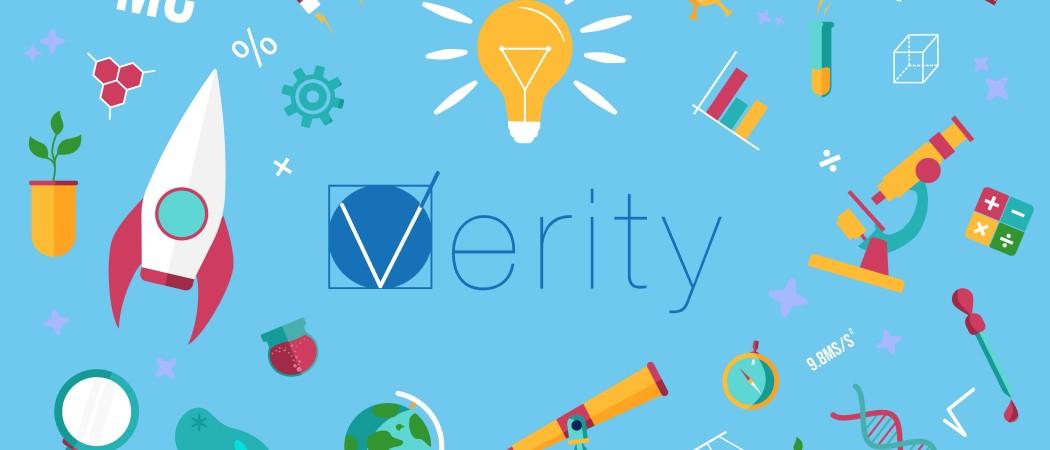EU-funded project seeks to restore trust in science amidst rising scepticism

Funded by the European Commission under Horizon Europe, the VERITY project seeks to increase trust in science and innovation by developing a set of guidelines to increase trust in science to engage stakeholders and citizens, which could have far-reaching implications in areas such as public health and the environment.
Are citizens becoming more sceptical about science?
When in 2020 scientists defied all odds and delivered a vaccine with the potential to curb the spread of a dangerous pandemic, an unwelcome but eye-opening side-effect came to light: it was not this enormous achievement that dominated the headlines, but scepticism, vaccine hesitancy, and governments’ struggle to get people vaccinated. It echoed the hostility to the research of scientists in other fields, including climate change, leading many to wonder whether they were witnessing the arrival of a post-science society.
At the same time, studies show that the majority of people have trust in science, which seems to contradict the popular narrative that public mistrust of science is widespread. However, it has become increasingly clear that attitudes towards science vary significantly across society. The 2021 Eurobarometer Report reveals significant variations in trust levels among different socio-demographic groups, with 60% of the unemployed and 57% of those who have trouble paying their bills most of the time agreeing with the statement "we can no longer trust scientists to tell the truth on controversial topics because they increasingly rely on money from industry."
Some researchers argue that distrust in scientific institutions does not necessarily reflect a distrust in science itself. Studies have found that often, people who deny the existence of man-made climate change, for example, use scientific arguments and reasoning—they accept the validity of science, but disagree on who the legitimate experts are. This trend is exacerbated by the perceived overlap between scientific institutions, private industry, and government, as reflected in the Eurobarometer Report mentioned above.
As a result, policy changes informed by scientific research and innovation are met with resistance, even when they promise major benefits across society. The realisation that scientific advancements are not enough if they are not accompanied by a sufficient level of trust lies at the basis of the VERITY project.
The VERITY project will take a holistic approach
An ambitious undertaking, VERITY is led by a consortium encompassing Trilateral Research (TRI) and includes the European Network of Research Ethics Committees (EUREC), Science|Business (SB), the Centre for Social Innovation (ZSI), the University of Central Lancashire (UCLan Cyprus), and the University of West Attica (UWA).
The project examines trust in science through the lenses of health and environmental research and will develop a set of guidelines to increase trust in science to increase societal trust in science, research, and innovation.
While other EU-funded projects focus on particular actors in the science ecosystem (e.g., scientists, research funding organisations, research ethics committees, etc.) to explore the impact of different factors on trust in science, VERITY aims to take a holistic approach and facilitate collaboration between science and society by mapping the “ecosystem of trust” and engaging different “stewards of trust.”
Building an ecosystem of trust
The stewards of trust could be research funding organisations and higher education institutions, but also include social media platforms and influencers. The former has a vested interest in science communication and open science. The latter now hosts the interactions of millions of citizens with the power to label certain science-related information as accurate or inaccurate, de-facto influencing society’s perceptions of science and innovation.
VERITY will bring these different players together in the “ecosystem of trust” so they can interact with one another and with people everywhere. In the ecosystem of trust, societal trust in science can be built, negotiated, and enhanced.
VERITY will strive to better understand the sources and consequences of mistrust and will develop tools and methods, including a set of guidelines to increase trust in science, to increase societal trust in science, research, and innovation through original research and small-scale participatory activities. The VERITY tools and protocol will have open science and stakeholder participation at their core and consider society's needs, expectations and values regarding science, research, and innovation. This work will be supported by ongoing network analyses and interventions on social media, to maximise its impact and adoption by different stakeholders.
To stay up to date on the VERITY project's progress and learn more about the importance of strengthening trust in science, sign up for the VERITY newsletter, which will launch soon. You can also visit its website and follow the project on social media.
HE HORIZON-WIDERA-2021-ERA-01 (Project ID: 101058623)
Funded by the European Union. UK participants in Horizon Europe Project VERITY are supported by UKRI grant numbers 10039826 (Trilateral Research). Views and opinions expressed are however those of the author(s) only and do not necessarily reflect those of the European Union or UKRI. Neither the European Union nor the granting authority nor UKRI can be held responsible for them




 A unique international forum for public research organisations and companies to connect their external engagement with strategic interests around their R&D system.
A unique international forum for public research organisations and companies to connect their external engagement with strategic interests around their R&D system.